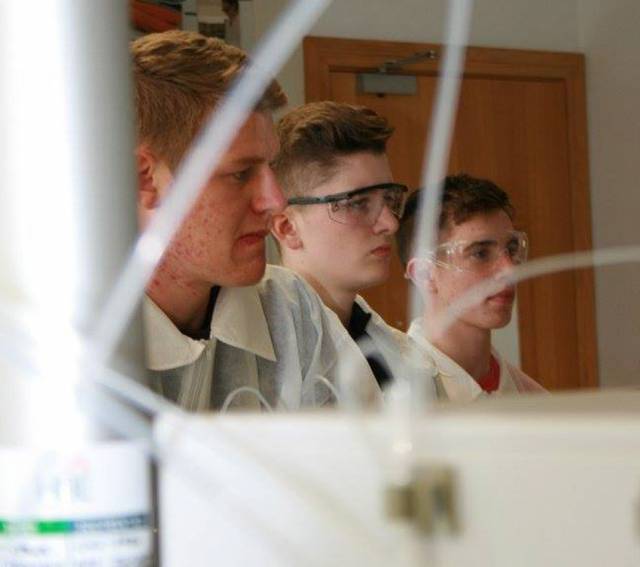#MarineScience - Over 20 Transition Year students participated in a wide range of activities at the Marine Institute as part of Engineering Week this past week from Monday 27 February to Friday 3 March.
For the third annual TY training week at the Marine Institute headquarters in Oranmore, the fourth-year pupils from Mayo, Galway, Kerry, Cork and Tralee increased their understanding of and interest in marine science, research engineering and technology careers.
Scientists and staff from the State agency responsible for marine research and innovation welcomed the opportunity to share their passion and insights across a wide range of areas in the marine science and maritime sectors.
Ireland's marine sector is a vibrant part of our national economy and the need for education in the marine sector at all levels is highlighted by Ireland's Integrated Marine Plan, Harnessing Our Ocean Wealth, according to Marine Institute chief executive Dr Peter Heffernan.
“Increasing the student's knowledge and engagement with marine careers in science, technology and innovation, as well as the sustainable development and management of our marine resource, is key to support Ireland's ocean economy, where highly qualified and skilled professionals are needed in the coming years,” he added.
The annual TY training course offers students an intensive week of shadowing scientists and staff learning about marine science, technology and engineering as well as a range of diverse supporting disciplines.
Promoting ocean literacy, the students took part in interactive experiments involving IT applications, marine environment and food safety, fisheries sciences, research vessel operations as well as advanced mapping, maritime development and communications.
The students found themselves working with hairdryers, balls and vinegar learning about data collection to how human industrial activities affect the increased levels of carbon dioxide in the ocean.
Interactive activities included dressing up in wet gear, forming sand sculptures of shipwrecks and working on group poster presentations provided learning opportunities that extended their skills and interests as well as raising their awareness about the ocean.
“With the training week fully booked out, we were delighted to see the increased levels of interest and understanding of the marine and the direct benefits of the communications and team building training that form an essential part of this rounded programme,” said Marine Institute HR manager Catherine Quigley-Johnston.
The programme aims to ensure a diverse and well-educated generation of marine scientists and researchers for the future, she added.
“The feedback from students confirms the need for industry and third level institutes, as well as State agencies to promote training and access for young people in marine and maritime careers.
“The training programme also highlights the effort and willingness of the Institute's staff to share their areas of expertise with the younger generations. This is what helps makes TY open days and training weeks so successful,” said Quigley-Johnston.
































































